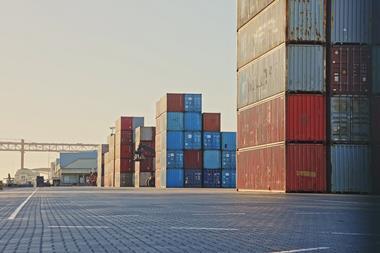US freight forwarders are bracing for shipper kickback on recently implemented security requirements for larger shipments.
At the end of October, shippers wishing to fly cargo that cannot be screened due to size or volume restrictions – such as aircraft engines, oil drums, or oil field drilling equipment - were required to be enrolled in the Transport Security Administration (TSA)’s authorised cargo security programmes in order to move the shipments.
Fried had previously explained that there will only be three options after October 31; join one of the cargo programmes, use seafreight instead of airfreight, or don’t ship the larger cargo at all.
Airforwarders Association (AfA) executive director Brandon Fried said he was expecting shippers to be on his voicemail very soon as shipments began to be held up.
Fried said that the AfA, National Customs Brokers and Forwarders Association of America and the TSA held a series of workshops across the US to raise awareness of the stricter requirements.
But "despite our efforts, we were not able to engage a substantial amount of shippers", said Fried.
"As a result [of the workshops], TSA picked up five or six shippers into the certified cargo screening programme," he added.
Forwarders are already coming under pressure from shippers, he said, but the only way to get around the issue is for shippers to sign up to the certified screening programme.
Fried added that attempts had previously been made to engage with the US Congress on the impact of the requirements but these efforts had been unsuccessful.
"Larger shipments are just not going to move," said Fried. "I knew it would be about a week for it to saturate and now it is starting.
"I believe that the next step is that the shippers are going to reach out to me because their forwarders are going to say they can't help."
He said he knew of one shipper that had decided to discontinue a product due to the new requirements because it "wasn't worth the hassle" and the "return on investment wasn't there".
Asked how complex it is to join the certified screening programme, Fried said that most shippers moving such items should already be meeting the requirements through their own security protocols.
The main difference between their own security regime and that of the certified screening programme is that the TSA could issue a fine and the company could be under investigation if requirements are not met.
"The TSA will come and test your facility like they do with forwarders. The TSA is very strict, but it all starts with education, training, awareness."
The screening requirement for larger shipments is part of International Civil Aviation Organization (ICAO) rules that require United Nation states to screen 100% of cargo being flown on an aircraft.
Fried said another concern for forwarders on the horizon was that the US government was looking into whether forwarders can help tackle the country's Fentanyl (opioid drug) crisis.
"They think that freight forwarders have access to information and the transparency of shipments," he said.
"They don't understand that quite a lot of times we don't have access to those shipments. We might be screening them for explosives but that doesn't mean we are opening them up."
He added: "It is not that we do not want to help, to the contrary, we all want to help but we need to be mindful of unfunded mandates.
"Things that require us to do things that are costly and are beyond our control. It is a big concern."
https://www.aircargonews.net/monthly-exclusive/governments-must-help-forwarders-invest-in-environmental-sustainability/
https://www.aircargonews.net/monthly-exclusive/fowarder-focus-las-long-awaited-air-cargo-development/















